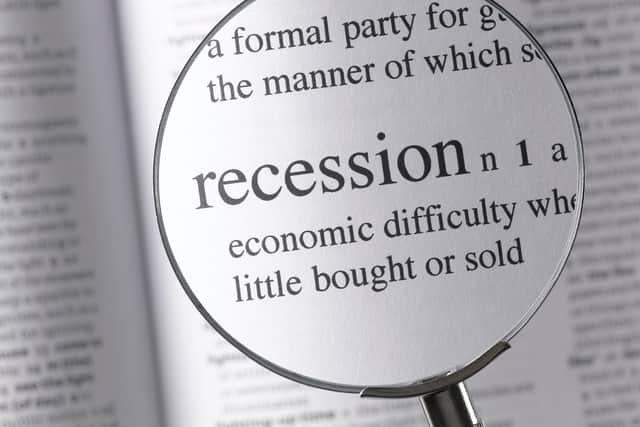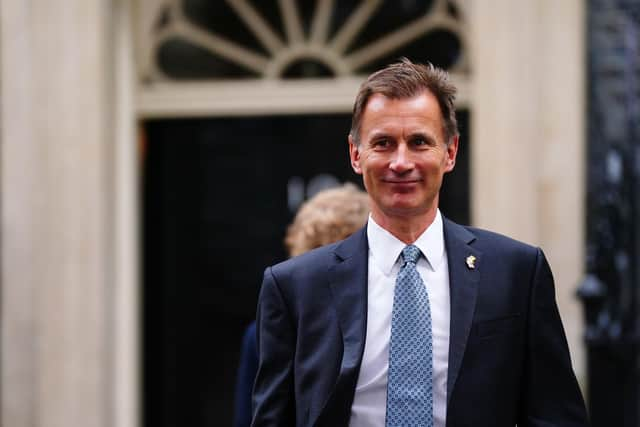What is a recession? Is the UK in a recession now? What does that mean for us?
The term ‘recession’ is one that strikes fear into most of us but it is also commonly misunderstood. As the world changes and it becomes more critical to organise your personal finances it’s important to understand what a recession is and what it means for you in the event of an economic downturn.
What is a recession?
In broad terms, a recession is any period in which there is a temporary economic decline, usually due to a reduction in trade or industrial activity. In the UK, a recession is when GDP falls in two successive quarters.


Advertisement
Hide AdAdvertisement
Hide AdGDP is the total market value of finished consumer goods or services produced within a country over a specific period of time. According to the Bank of England website, it is a “measure of the size and health of a country’s economy,” which is also used to compare different economies over different periods.
Is the UK in a recession now?
The independent Office of Budget Responsibility recently warned that the UK is in a recession and is expected to stay in one for the rest of 2023. In their January report, BBC News reported that according to the latest figures from the Office for National Statistics the UK economy ‘shrank 0.3% in the three months to November’.
When was the UK last in a recession?


Our last recession fell during the height of the Covid-19 pandemic in August 2020, following an extensive lockdown with shops and other venues being closed seeing hundreds of companies going out of business. Overall, the UK’s GDP fell by a staggering 20.4% as many people lost their jobs or were furloughed for long periods of time.
The UK also had a recession in 2009 after the economic crisis of 2008 – GDP fell by 7% then and the situation did not ‘end’ until the final quarter of 2009.
Why do interest rates matter?
According to the Bank of England website, interest rates are percentages that account for “the cost of borrowing money or the reward for saving.” For example, the interest rate of your bank account means you are paid interest e.g., if you open an account with £100 and your interest rate is 1%, after one year you will be paid £1. Similarly, for mortgages or loans, you would also pay an interest rate to whoever you borrowed money from.
The Bank of England says: “We use Bank Rate in our dealings with other financial institutions, which influence lots of other interest rates in the economy.
"This includes the various lending and savings rates offered by high street banks and building societies.”
How could rising inflation affect you?
Increased interest rates allow savers to gain more interest than their own savings each month, however if these rates sit well below inflation - as they currently do - people are expected to experience financial losses.
Advertisement
Hide AdAdvertisement
Hide AdFor cost of living factors like food shopping, the rising cost of borrowing money could see the cost of food pushed up. Interest rates may also affect renters depending on their circumstances e.g., if landlords want to remortgage at higher rates this may fall onto their tenants to pay more.
Others with tracker mortgages should also see their monthly cost rise according to the interest rate.
Comments
Want to join the conversation? Please or to comment on this article.
